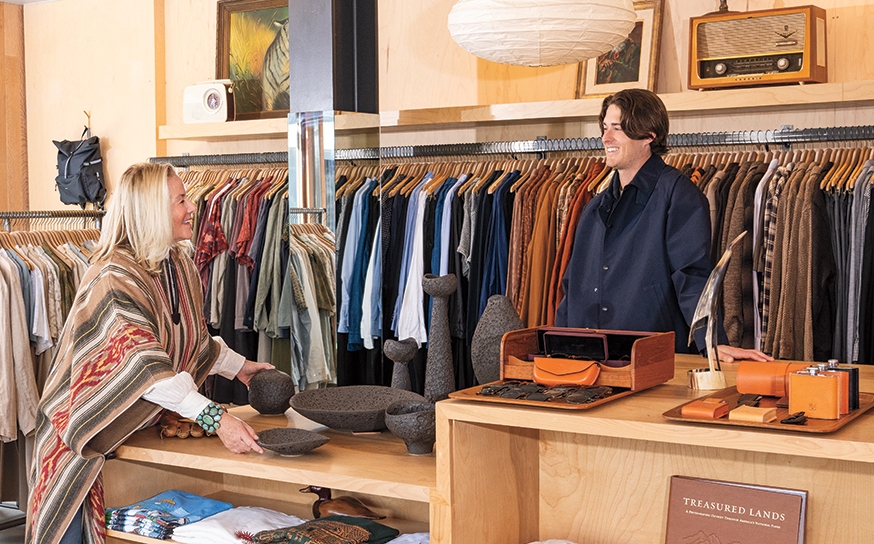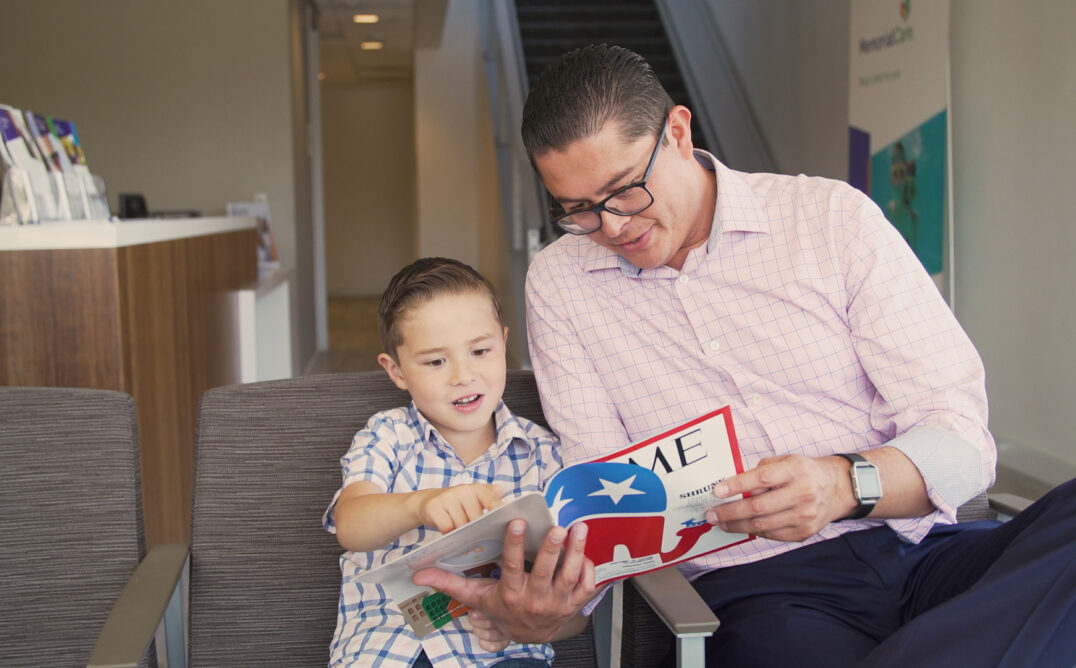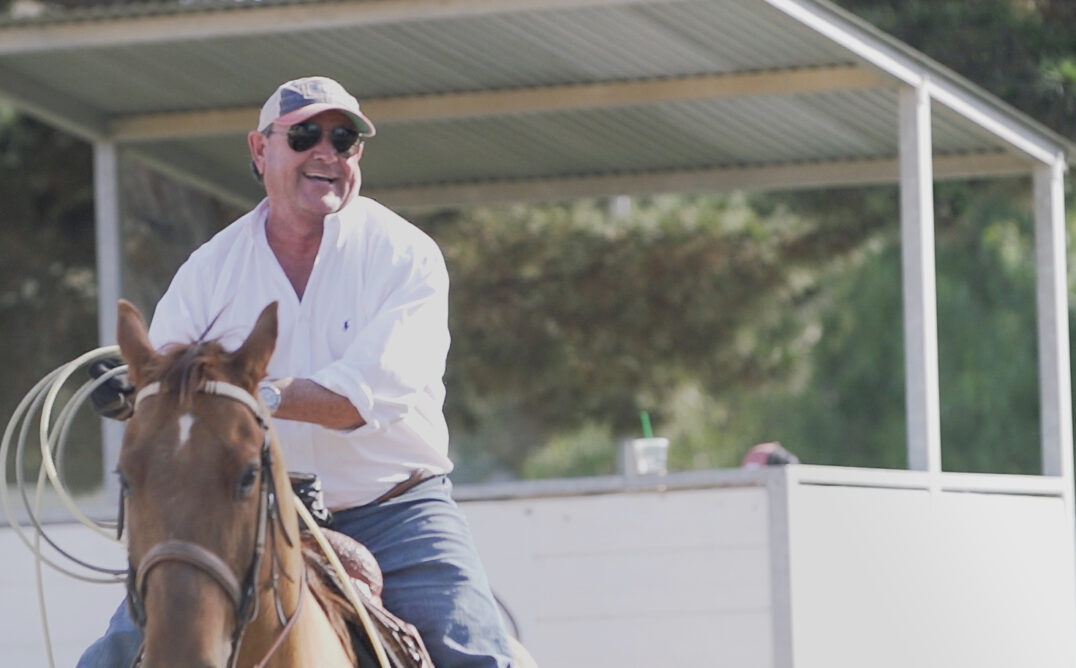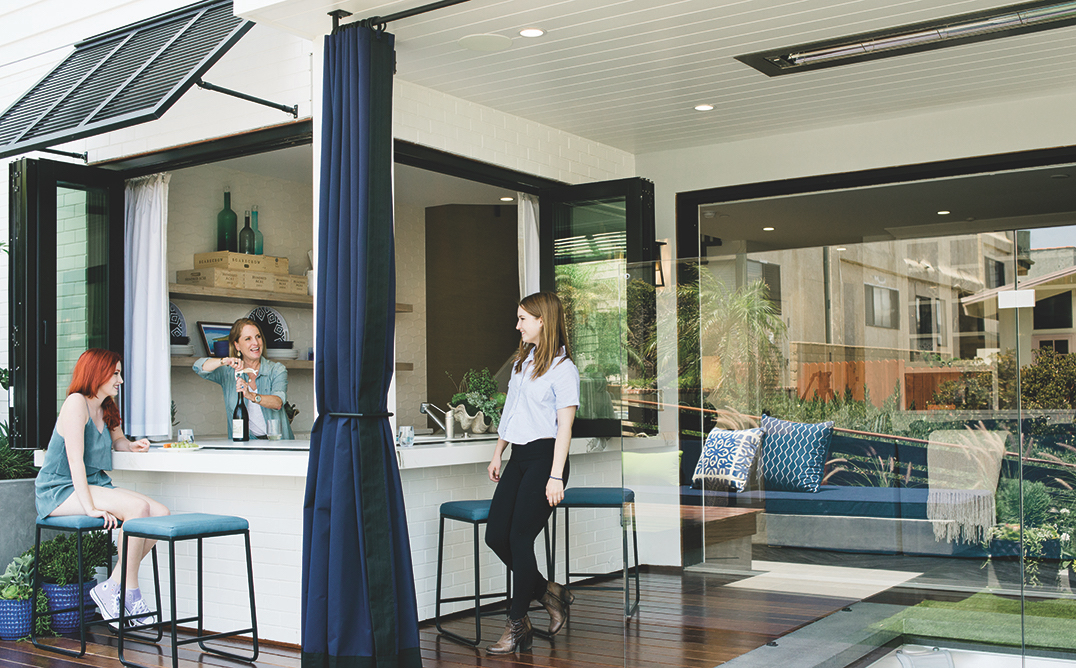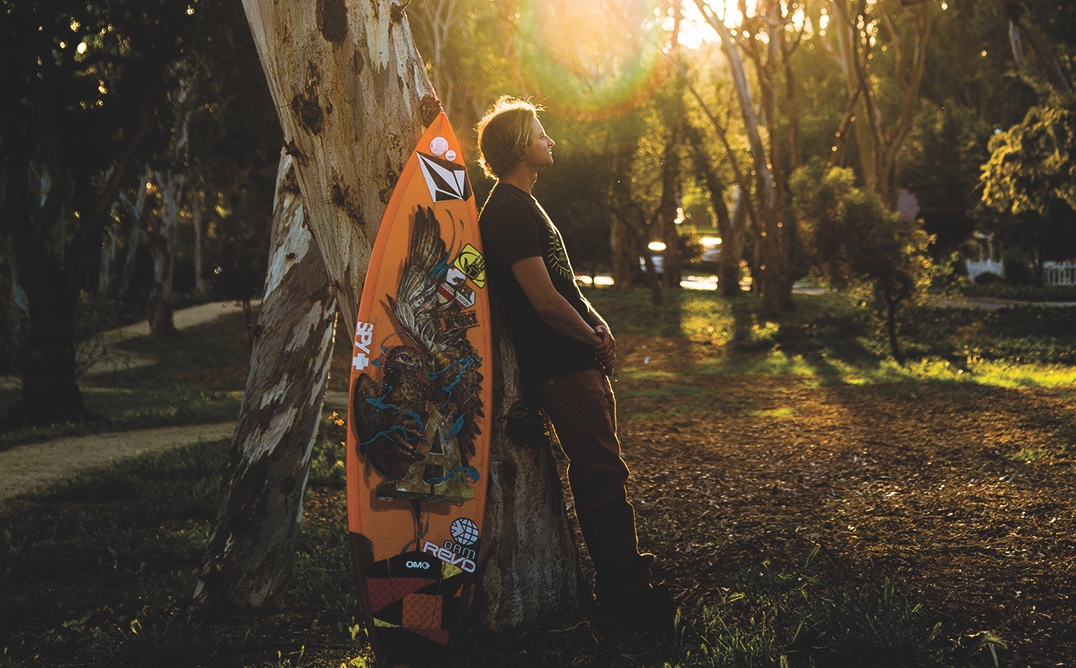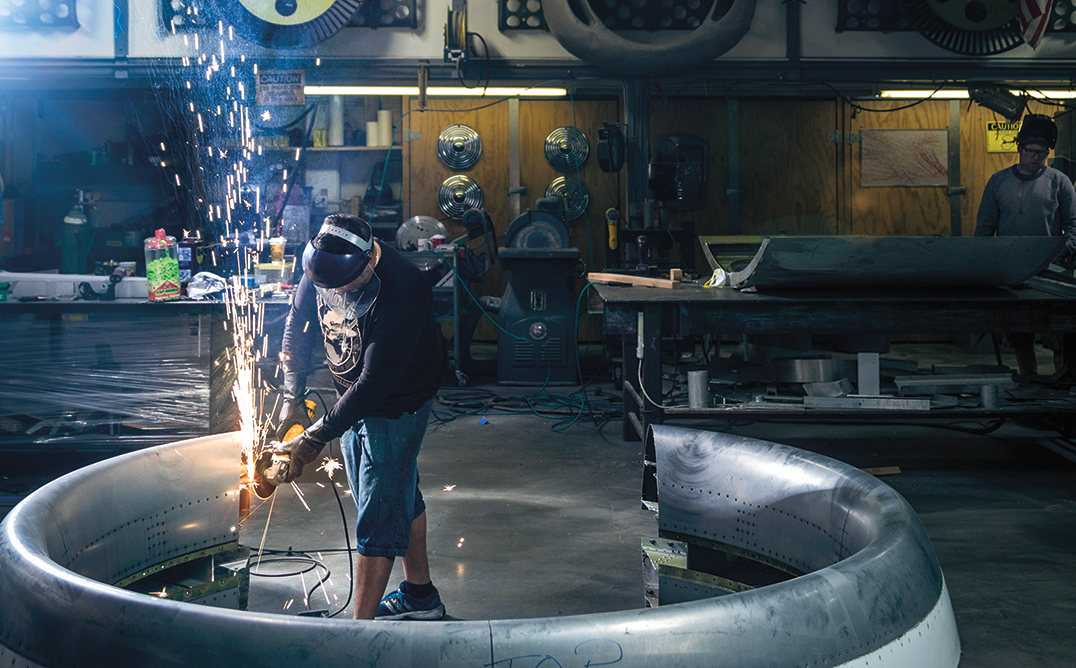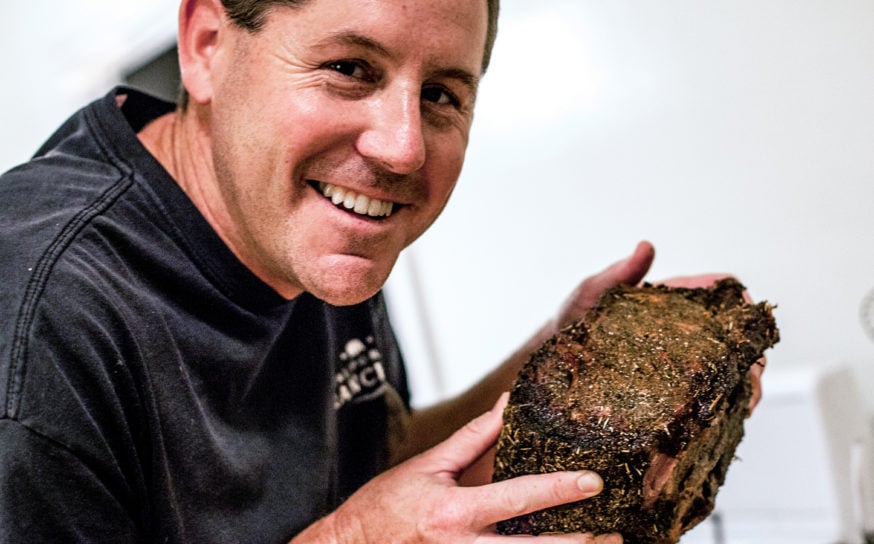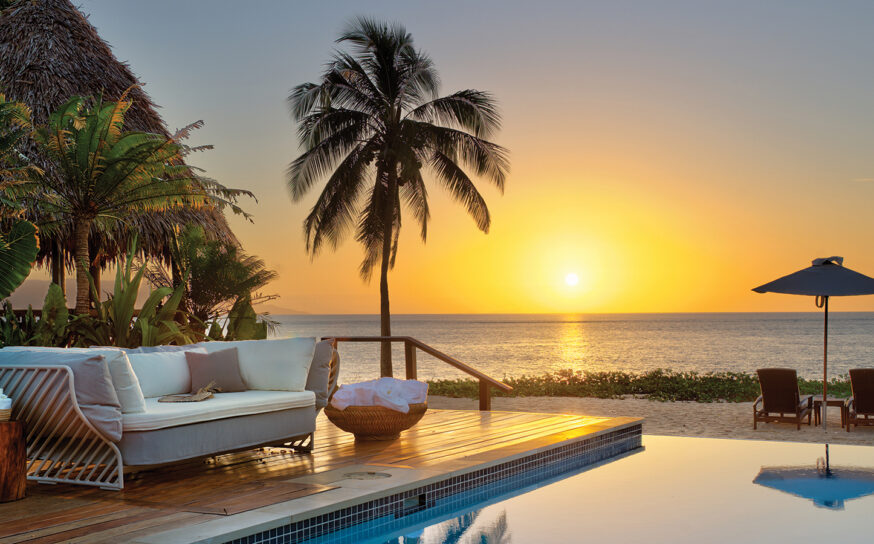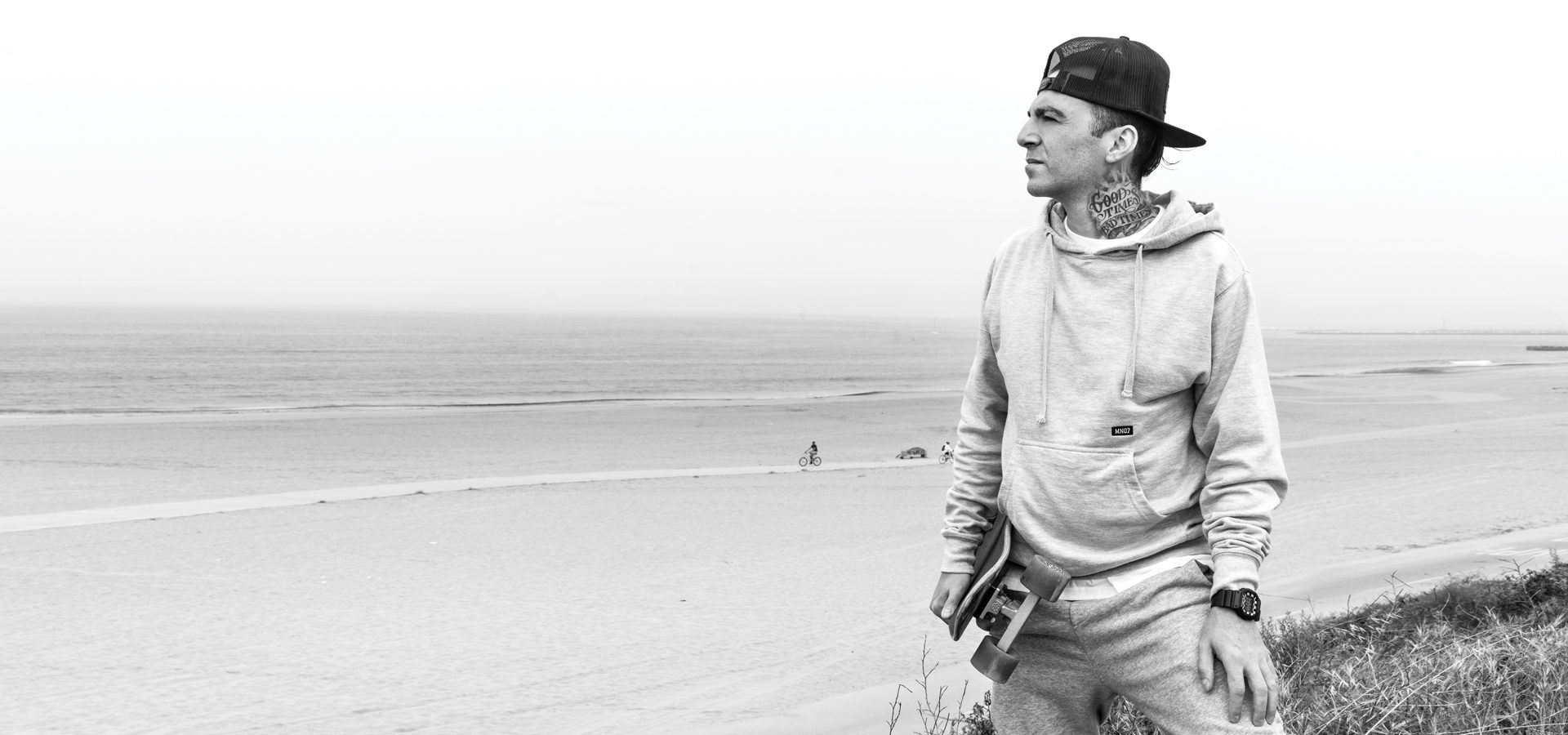
Operating an Independent Business in the Evolving Cannabis Industry Isn’t Easy, but Drew Director Isn’t Giving Up
High hopes.
- CategoryPeople
- Written byAmber Klinck
- Photographed byShane O’Donnell
Drew Director is a bit of a renaissance man. He graduated from the University of California, Santa Cruz with dual degrees in business management economics and legal studies. He almost went to law school, but instead he took an internship and climbed the ladder over a decade at Mister Cartoon’s Soul Assassins tattoo shop—an iconic Los Angeles art studio notable for its fine line tattoos, celebrity clientele, and collaborations with heavy hitters like Nike, Apple and Pepsi. “It was a dream come true,” Drew says.
While working at Mister Cartoon’s, Drew opened his own small business. “I had a store in Hermosa Beach called No. 4 on Pier Avenue. It was a skateboarding/streetwear shop.”
But the clothing industry is tough, and No. 4 was barely breaking even. When Mister Cartoon’s studio closed its doors, Drew closed No. 4 as well. It was time for a new endeavor, and as luck would have it, California was opening the possibilities for a new business venture. Cannabis was becoming legalized in the state for recreational use. But it was more than a new business opportunity that sounded appealing to Drew.
“I started cannabis because I’m passionate about the plant,” he says. “Whether it’s used to help with sleep, to wind down at the end of the day, to cope with anxiety—whatever it may be, it’s a medical plant. I love providing it to people because I think it’s good for society.”
“I think that’s something that makes us different—how much we care about the community and their experience with the plant. It’s not just a business for us. If you look at how we treat our customers and what they say about our company, it’s evident.”
High Tide, a cannabis delivery service based in the South Bay, has grown into the #1 provider for the area. But it began as a small grow.
“At the time it was medicinal, so that’s what I was doing. I grew it and tried to sell it in bulk, but I was just breaking even. It was a wash; it went nowhere. I realized I had to break it down—to go from cultivation direct to consumer—instead of cultivation to bulk.”
That’s when business at High Tide really started to flourish. “I was doing great. I was growing it, I was packaging it, I was hand-delivering it to friends and family. Those friends and family would refer me to other people, and I made profit.” It went on like that for roughly a year.
During the second year, Drew’s focus shifted to getting licensed by the state for recreational use. “Now that is a huge challenge. It’s incredibly hard to get a license for cannabis—it’s a money pit,” he points out. But it was becoming necessary.
Regardless of the success High Tide was having selling medicinal cannabis, the introduction of the legalization of recreational use meant the medicinal field was changing. “Because Prop 215 had been around for a decade, there’s been medical cannabis in California for a long time,” Drew explains. “Now it’s Prop 64: recreational and medicinal. So I worked as hard as I could to get a license, knocking on everyone’s door in Los Angeles, doing meetings and meetings: ‘Hey, I’m High Tide, these are our sales.’”
And it worked. High Tide was licensed initially through a collaboration and then eventually on its own.
“And that’s when we started losing money,” Drew says, “because it’s overregulated, it’s overtaxed. The operational costs of being a licensed company are too high.”
High Tide found itself competing with big corporate delivery services with seemingly endless pockets. “More than half the operators in California left the state to try it in Oklahoma or Oregon,” he adds. “I’m the small-business guy who’s actually providing the best service to the people, and I can’t make it work. That’s the problem. My only options are to merge or get acquired. I wanted to start from the bottom, work harder than anyone else has, provide the best service and products possible, and have a successful company from doing so. And the state of California isn’t allowing that to happen. Period. That’s the story.”
It’s disheartening, but Drew’s not ready to walk away—especially from the clients who have relied on High Tide over the years. “I think that’s something that makes us different—how much we care about the community and their experience with the plant. It’s not just a business for us. If you look at how we treat our customers and what they say about our company, it’s evident.”
The future of High Tide is uncertain, but Drew’s belief in the healing benefits of cannabis and the positivity it spreads is unwavering.







